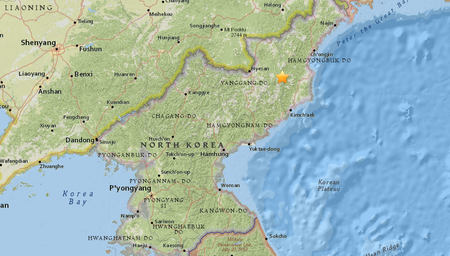Much Ado About North Korea
How should the U.S. respond to the country’s growing military capabilities?

Tensions with North Korea are reaching new levels, and President Donald Trump is signaling that he’ll take action.
Just this morning, Trump said the country’s launch of an intercontinental ballistic missile over the weekend would garner a “very severe” response.
Will the situation continue to escalate? Is Trump able to navigate the political complexity of international relations, with both Kim Jong Un’s regime and the web of regional players involved?
Stephen Manning, a University of Detroit Mercy politics professor, joins Detroit Today host Stephen Henderson from Beijing to analyze the global repercussions of Kim Jong Un’s “July 4th present.”
“The missile has been determined to indeed be intercontinental…and could reach Alaska and perhaps even parts of the Western coast of the United States,” Manning says. “They don’t feel any need—as most countries do—to be a part of any international community.”
Manning discusses China’s hand in the launch. He says the missile was launched from a Chinese manufactured platform.
“I think we ought to start with asking, how did North Korea get this capability?” he says. “I think part of answer points to China.” Manning asks if the United States can fault North Korea for taking advantage of its relationship with China and other countries.
“It’s a legitimate question for North Korea to ask: why are all these American troops in South Korea?” Manning poses. “Why can’t we have our allies like China and Russia and develop an arms systems just like the South Koreans can with the U.S.?”
BuzzFeed Senior National Security Correspondent Nancy Youssef, a former Detroit Free Press reporter, also joins the show to talk Trump’s strategy.
“The challenge is that the president uses such potent language on such complex problems,” she says. “This could open a real Pandora’s box.”
Click on the audio player above to hear the full conversation.

